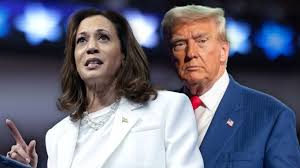Introduction
In a crucial turning point for Turkish politics, the 2023 Turkish election has delivered surprising results, signaling a significant shift in the country’s political landscape. The ruling party, led by President Recep Tayyip Erdogan, has fallen short of securing a majority in the first round of voting. This unexpected outcome has set the stage for a runoff between Erdogan and the main opposition candidate, Ekrem Imamoglu. As Turkey braces itself for the final showdown, this article examines the key implications and potential impact of the election on the nation’s political future.

1. Erdogan’s Party Struggles to Secure a Majority
Despite being a dominant force in Turkish politics for years, Erdogan’s ruling party faced unexpected challenges in the 2023 election. The party failed to secure a majority in the first round of voting, reflecting a growing dissatisfaction among the electorate. Economic issues, including rising inflation and a downturn in the country’s economy, have contributed to this shift in public sentiment.
2. The Rise of the Opposition Party
The election results showcased a significant surge in support for the main opposition party. Led by Ekrem Imamoglu, the opposition gained substantial ground, securing more votes compared to the previous election. This resurgence highlights the increasing appeal of alternative political voices and suggests a desire for change among Turkish voters.
3. Testing Erdogan’s Dominance
Erdogan, known for his dominant presence and firm grip on power, now faces a critical test in the face of a formidable opposition. The runoff between Erdogan and Imamoglu will determine the next president of Turkey, posing a substantial challenge to Erdogan’s long-standing reign. The outcome of this contest will serve as a litmus test for Erdogan’s political influence and the endurance of his ruling party.
4. Economic Challenges and Discontent
The ruling party’s struggle in the election can be attributed, in part, to economic challenges plaguing the nation. Rising inflation, unemployment, and a slowdown in economic growth have left many Turkish citizens dissatisfied. These economic issues have fueled discontent among voters, leading to increased support for opposition candidates who promise alternative solutions.
5. Significance of the Election and Potential Impact
The 2023 Turkish election holds immense significance for the country’s political future. The results signify a potential power shift, with the ruling party facing a more formidable opposition than ever before. The election outcome will shape the course of Turkish politics, impacting policies, governance, and the overall direction of the nation.
Conclusion
The 2023 Turkish election has ushered in a new era of political dynamics in the country. President Erdogan’s ruling party falling short of a majority, coupled with the opposition’s remarkable gains, illustrates a clear shift in public sentiment. As the runoff between Erdogan and Imamoglu approaches, Turkey stands at a crossroads, poised to determine the next chapter in its political history. With economic challenges and discontent among voters influencing the election, the outcome will have far-reaching implications for Turkey’s future. As the nation watches, the question remains: Will Erdogan’s dominance prevail, or will the opposition’s rising popularity reshape the political landscape of Turkey? Only time will tell.




